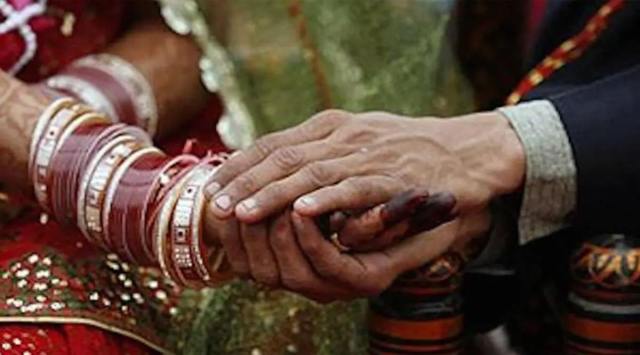Parliamentary committee examining marriage Bill gets three-month extension
The Bill, tabled by Women and Child Development minister Smriti Irani last December, aims to raise the legal age of marriage of women in the country to 21 years from the present 18 years.
 The extension was on the request of Committee Chairman Vinay Sahasrabuddhe. The panel will now submit its findings to Parliament by June 24.
The extension was on the request of Committee Chairman Vinay Sahasrabuddhe. The panel will now submit its findings to Parliament by June 24.Rajya Sabha Chairman Venkaiah Naidu on Monday granted a three-month extension to the Standing Committee examining the Prohibition of Child Marriage (Amendment), Bill, 2021.
The Bill, tabled by Women and Child Development minister Smriti Irani last December, aims to raise the legal age of marriage of women in the country to 21 years from the present 18 years.
Referred to the Standing Committee on Education,
Women, Children, Youth and Sports Affairs by Naidu, the Bill, which has received objections from women and child rights experts, was to present its report in the current session of the House, by March 24.
The extension was on the request of Committee Chairman Vinay Sahasrabuddhe. The panel will now submit its findings to Parliament by June 24.
The law prescribes a minimum age of marriage to essentially outlaw child marriages and prevent the abuse of minors. Personal laws of various religions that deal with marriage have their own standards, often reflecting custom.
The amendment in the Prohibition of Child Marriages Act, 2006, is proposed to extend to all communities, irrespective of religion.
While minority organisations have not objected to raising the legal age of marriage for women, they have expressed concern over the infringement of the rights of the minorities in deciding their own code for marriages within their communities.
Child and Women’s rights activists, as well as population and family planning experts have not been in favour of increasing the age of marriage for women on the basis that such a legislation would push a large portion of the population into illegal marriages.
They have contended that even with the legal age of marriage for women being 18 years, child marriages continue in India and a decrease in such marriages has been not because of the existing law, but increase in girls’ education and employment opportunities.
They have said the law would end up being coercive, and particularly impact marginalised communities such as the scheduled castes and scheduled tribes.







